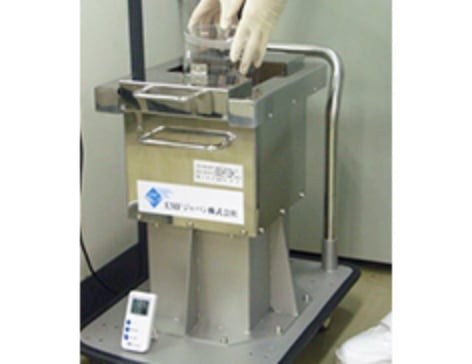Food Safety Q&A
The following food safety-related Q&A explains issues that have attracted consumer interest and concern.
-

Q1 What dangers do harmful microorganisms pose?
-
A
When present in food, harmful microorganisms, such as bacteria and viruses, can cause food poisoning and adversely affect health. These microorganisms are so small that they are invisible to the naked eye.
Some harmful microorganisms degrade the quality of food and may cause food poisoning. But microorganisms can cause food poisoning even when it is not apparent that the quality of the food has deteriorated.
Japan’s Ministry of Agriculture, Forestry and Fisheries guidelines, titled Microbiological Hazards in Food of High Priority, lists campylobacter spp., enterohemorrhagic escherichia coli, listeria monocytogenes, norovirus, and salmonella enterica as hazards requiring risk management.
While the characteristic food poisoning symptoms caused by these harmful microorganisms differ, they include diarrhea, abdominal pain, fever, nausea, vomiting, headache, chills, malaise, sore throat, and muscle pain. In severe cases, death may occur.The Nichirei Group recognizes that the control of harmful microorganisms is a top priority in food hygiene management. While we observe the three principles of food hygiene—avoid contact with, do not spread, and eliminate harmful microorganisms in food—we have added a fourth principle: do not bring in. We strictly adhere to this fourth principle in order to prevent food contamination.
We conduct verification checks that include production environment reviews and microbiological tests on partly finished and finished products, to ensure enhanced hygiene management in accordance with the US Food and Drug Administration’s Hazard Analysis Critical Control Point food safety management system.
-

Q2 How does Nichirei control veterinary drug residue in food?
-
A
Veterinary drugs serve many purposes, such as to treat and prevent disease in marine animals and livestock.
The Food Safety Commission of Japan evaluates safety, while the Ministry of Health, Labour and Welfare sets and manages residue standards.The Nichirei Group uses logs to ensure that it complies with usage prohibitions and drug suspension periods, so that veterinary drugs used in aquaculture and livestock breeding are administered according to prescribed dosages.
Further, we analyze veterinary drug residue before product shipments, and only provide marine and livestock products that meet prescribed standards and pass the required inspections.
-

Q3 What measures do you take regarding residual pesticides?
-
A
Agricultural chemicals serve many purposes, depending on their application. The chemicals include herbicides to remove weeds that hinder crop growth, disinfectants to protect crops from disease, and insecticides to protect crops from pests.
The Food Safety Commission of Japan evaluates safety, while the Ministry of Health, Labour and Welfare sets and manages residue standards.The Nichirei Group uses logs to make sure that the pesticides used in the cultivation of agricultural products are applied according to prescribed methods.
We also analyze residual pesticides before harvests and in finished products, so that we may provide only agricultural products that meet designated standards and pass the required inspections.
Following an incident—in which the level of residual pesticides in frozen spinach exceeded the residual pesticide standard for fresh spinach—Nichirei Foods introduced a system for managing residual pesticides in the frozen vegetables they handle. Now, printed on products to enable traceability are trace codes that include such data as product origin and date of harvest.
-

Q4 How do you indicate allergy warnings on your packaging?
-
A
At present in Japan, there are 28 types of food identified as causing food allergies. Of these, eight (shrimp, crab, walnts, wheat, buckwheat, eggs, milk, and peanuts) are involved in a large number of symptomatic cases.
Due to the severity of these symptoms, Nichirei is legally required to include warnings on labels in accordance with the Food Labeling Act.The Nichirei Group examines ingredients used, including the potential for unintended contamination during the production process, then labels allergens in accordance with the Food Labeling Act.
Prepared frozen food for household use that is handled by Nichirei Foods carries a list of allergens on the package labels.
-

Q5 How do you address concerns over radioactive materials?
-
A
There was widespread concern that food would be contaminated by radioactive substances after the nuclear meltdown at the Fukushima Daiichi Nuclear Power Plant that resulted following the Great East Japan Earthquake and Tsunami in 2011.
The Ministry of Health, Labour and Welfare established standard values for radioactive substances, in order to ensure food safety and peace of mind among consumers. The ministry continues to conduct inspections to ensure that only safe food is distributed.The Nichirei Group conducts its own food safety inspections of products and their ingredients by monitoring radioactive substances with NaI (Tl) scintillation spectrometers.

